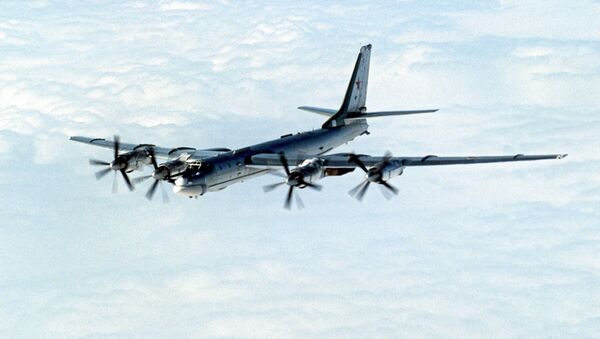MOSCOW, July 10 (RIA Novosti) - Russian long-range aviation bases are increasing their presence in the Arctic, the press service of the Eastern Military District reported Thursday.
"The crews of Tupolev Tu-95MS strategic bombers at the Arctic long-range aviation base in Amur Region, have tripled their flying rate this year. By performing these tasks, the crews gain valuable experience in offline piloting over featureless terrain for a long period of time," the chief of the press service, Colonel Alexander Gordeyev, said.
The colonel said the flights are being carried out according to a patrol plan in the waters of the Arctic Ocean at maximum range and duration. Additionally, the pilots are practicing aerial reconnaissance, air refueling and interactions with other branches of the armed forces.
"Since 2014, we’ve been paying specific attention to practicing landing and taking off on the northern airfields in various conditions," Gordeyev said.
All flights are carried out in strict accordance with international regulations on the use of airspace without violating the borders of other states.
This statement comes amid Russia's active resource exploration in the Arctic. The region’s potential resources are evaluated at $30 trillion, and Russia intends to shift its oil and gas exploration activities there in the near future, specialists at Russia's Emergencies Ministry said, hence the need to protect the territory.
Russia regards Arctic exploration as one of its top priorities and economic growth drivers. The discovery of large hydrocarbon deposits in the Arctic has sparked international competition over the region’s resources. Last year, Moscow unveiled a strategy aimed at increasing its presence in the Arctic and boosting the region’s development by 2020.



